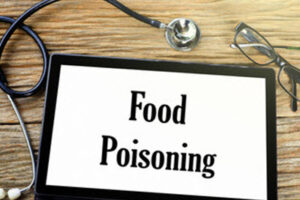Bacteria in Soda Fountains: Food Poisoning Risk

When you think of food poisoning, you may think of perishable food that’s been left out too long or maybe contaminated vegetables from grocery stores. Researchers have unlocked a new fear: bacteria in soda fountains.
You may think nothing of refilling sodas from your local fast food restaurant, but water pollution can cause bacteria such as E. coli, salmonella and Pseudomonas aeruginosa to form in soda machines. These bacteria can cause severe food poisoning and other illnesses.
A study, published in August in the journal Drinking Water, focused on Southern California. It found more than 40% of water samples from fast food soda fountains had coliforms present, which is an indicator of contamination. While soda fountains rely on government and manufacturer standards, the study questions the sanitation and maintenance of water.
While the study focused on a small area, researchers believe it is a general problem that is largely overlooked. In fact, researchers had looked into the public health risks at fast food soda fountains decades ago and made similar discoveries.
The restaurant industry is in denial, though. The industry claims it is following the standards in place. So should the standards be revised to prevent the spread of disease at soda fountains? Health officials aren’t making any changes just yet.
What to Know About Contamination in Soda Fountains
Contamination in soda fountains can be caused by the following:
- Improper cleaning. If soda fountain machines are not regularly and properly cleaned, bacteria can accumulate and contaminate the beverages dispensed.
- Contaminated water supply. If the water supply used in the soda fountain is contaminated with E. coli, it can lead to contamination of the soda.
- Handling practices. Improper handling by staff, such as not washing hands or using contaminated cleaning tools, can introduce E. coli to the machines.
To prevent E. coli contamination in soda fountains, the following measures should be taken:
- Regular cleaning. Machines should be cleaned and sanitized daily, following manufacturer guidelines and health department recommendations.
- Water quality control. Ensure the water supply is safe and regularly tested for contaminants.
- Proper handling. Staff should be trained in proper hygiene practices, including regular hand washing and using clean equipment.
- Routine inspections. Health departments should conduct routine inspections to ensure compliance with sanitation standards.
Consumers can also take steps to minimize their risk:
- Be cautious when using soda fountains in establishments with visible cleanliness issues.
- Report any concerns about the cleanliness of soda fountains to the management or local health department.
Contact a New Jersey Personal Injury Lawyer Today
The food and beverages that you buy at fast food joints and other restaurants should be safe for consumption. However, a lack of cleanliness can lead to E. coli, food poisoning, and other issues.
Have you or a loved one gotten sick from food or drinks from a restaurant, store, or other place of business? If so, seek legal help from Morristown product liability attorney from The Law Offices of Michael P. Burakoff. We have extensive experience helping clients injured by food poisoning as well as poorly designed, poorly manufactured, and poorly labeled products. Call (973) 455-1567 or fill out the online form to schedule a consultation.
Source:
usatoday.com/story/news/health/2023/10/09/salmonella-e-coli-fast-food-soda-fountain-water/70990305007/

